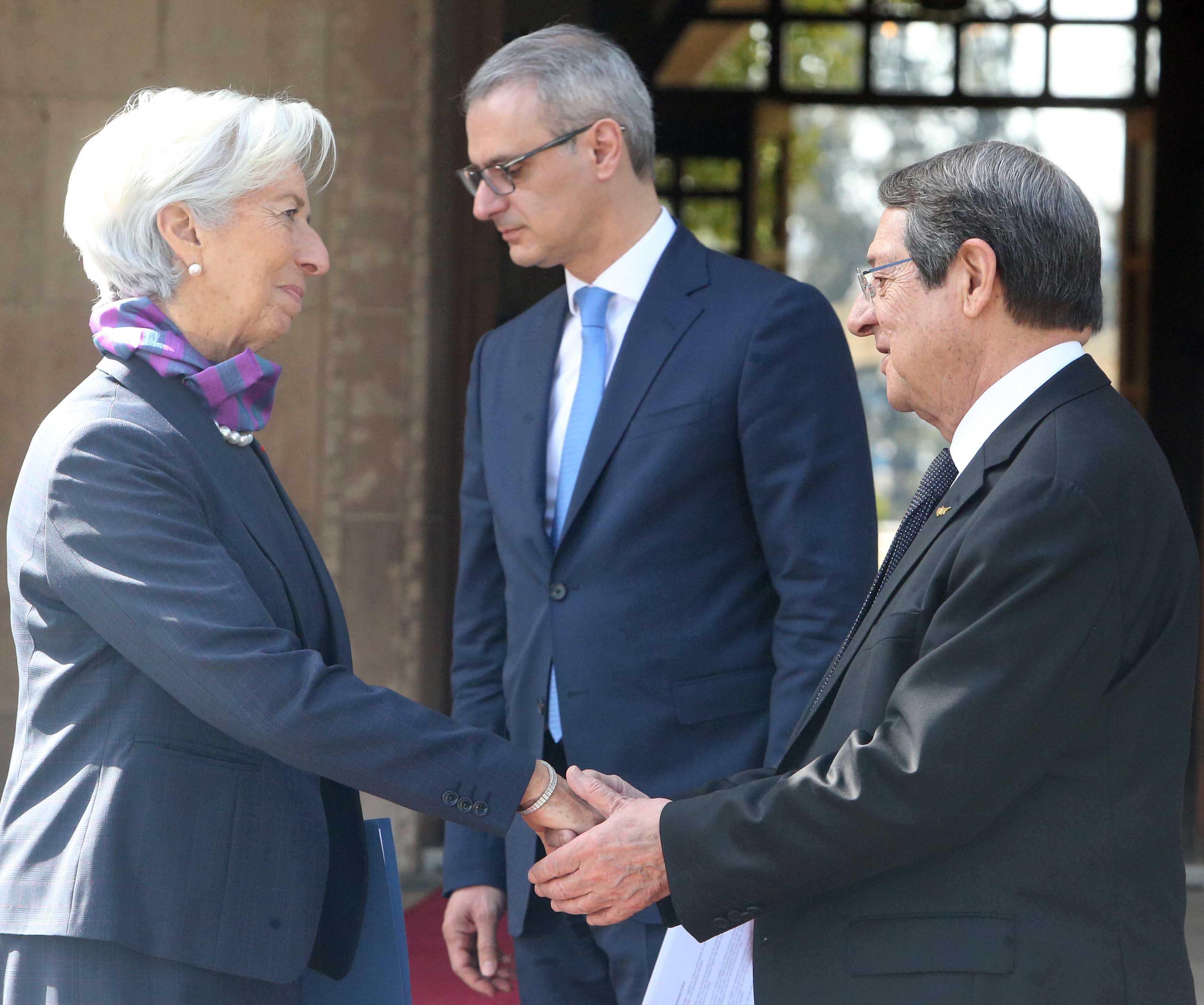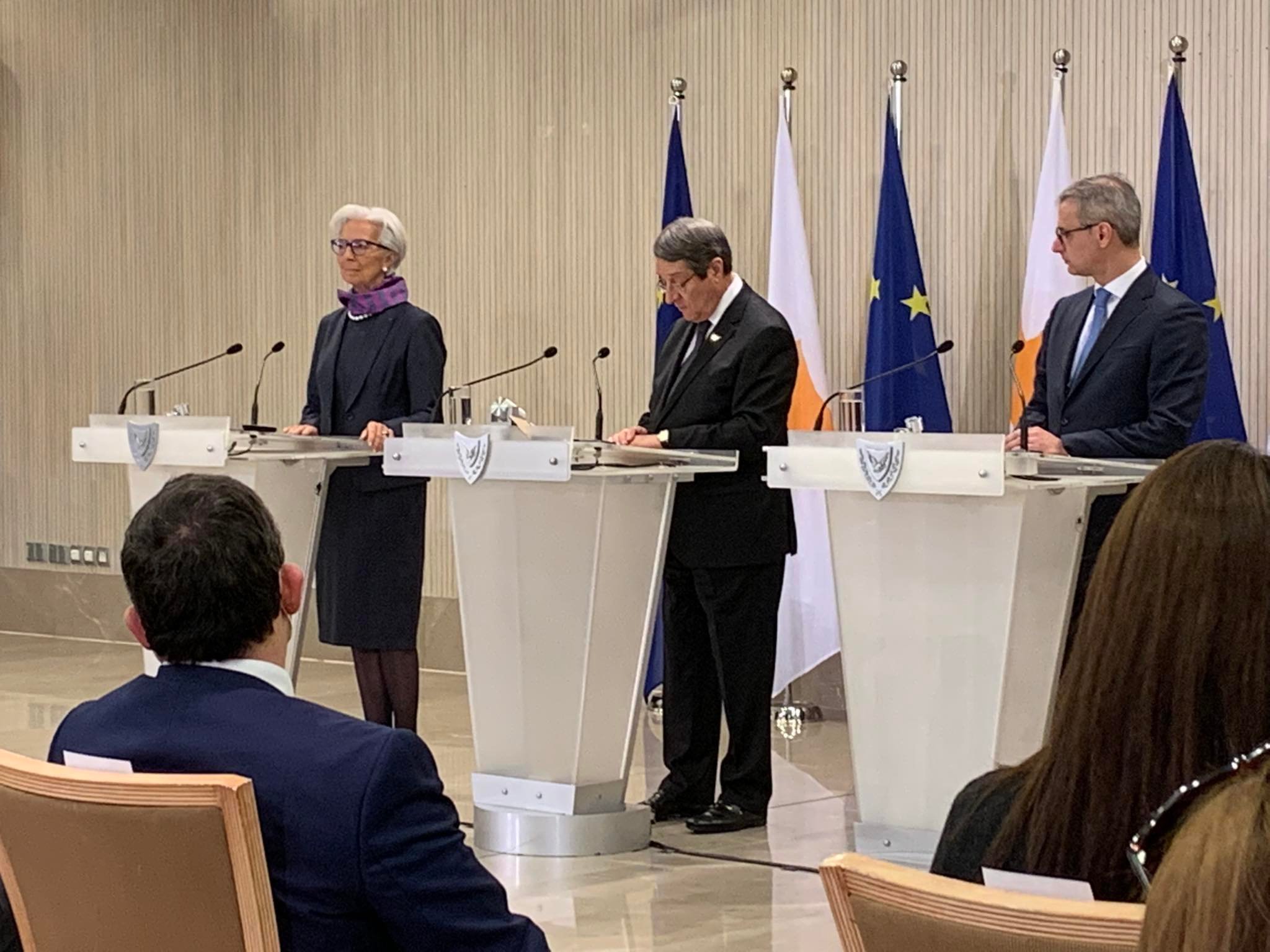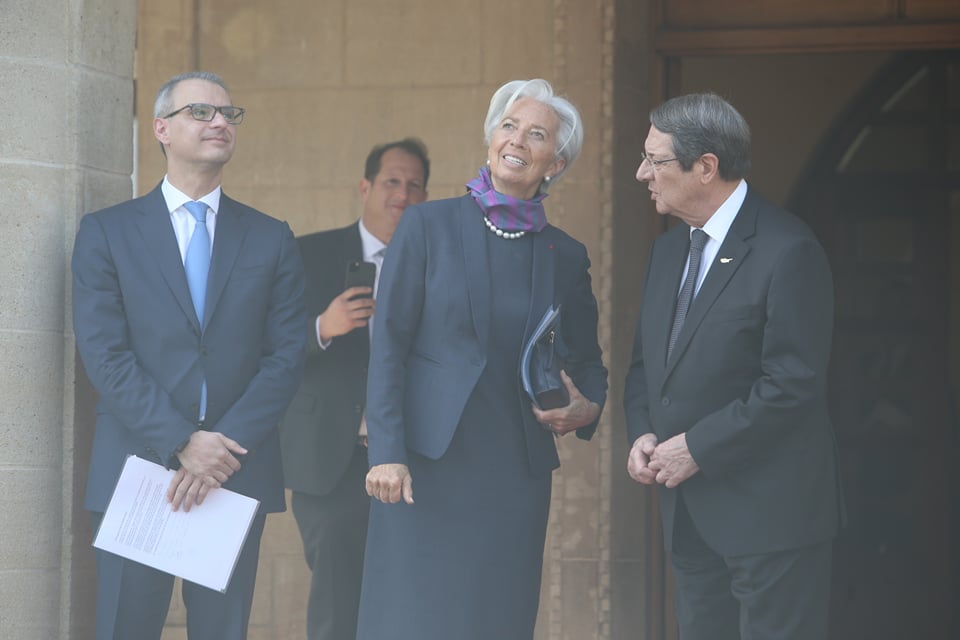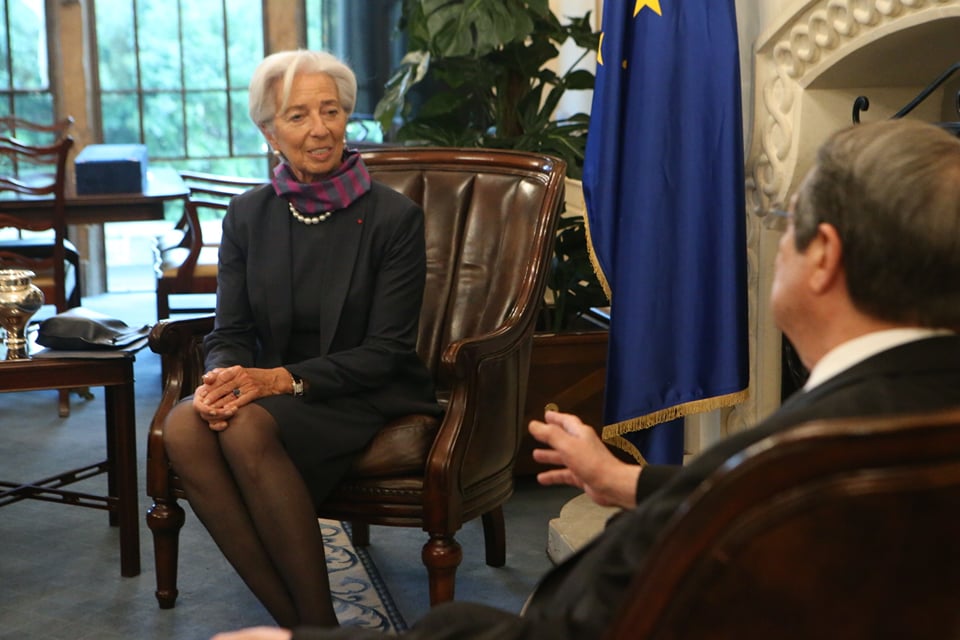European Central Bank President Christine Lagarde on Wednesday said that while Cyprus would inevitably be affected by rising inflation and deteriorating growth, its economy was better equipped to handle the crisis than it was previously.
“Europe is now faced with another crisis in the form of the Russian invasion of Ukraine,” Lagarde said, pointing out, however, that “this is first and foremost a human tragedy”.
“But it is also a significant economic shock, owing to our proximity to Russia and our dependence on its gas and oil,” she added, in her keynote address at conference organised by the Central Bank of Cyprus in Nicosia.
The shock would be felt in Cyprus as well, she said, before praising the country for joining the rest of Europe in opposing the invasion and imposing sanctions against Russia.
Conceding that Cyprus, along with the rest of the European Union, is faced with increased uncertainty, Lagarde provided an analysis of how economies recovered from the pandemic.
“Before the Russia-Ukraine war began, the euro area economy was rebounding well from the pandemic,” Lagarde said, adding that “the recovery was much faster and more job-rich than after previous recessions”.
She cited that it took seven years for the euro area to recover to its pre-crisis GDP level after the financial crisis of 2008, while it took 12 years for unemployment to recover in a similar fashion.
Conversely, she stated, euro area GDP already exceeded its pre-pandemic levels at the end of 2021, while unemployment had fallen to its lowest levels in decades.
“Cyprus has shared in this strong recovery dynamic,” Lagarde said, explaining that GDP grew by 5.6 per cent in 2021, returning to its 2019 level, while unemployment also decreased to its pre-pandemic level of around 6 per cent.
“This strong performance owes a lot to the exceptional policy response in the euro area, where fiscal and monetary policy worked hand-in-hand to protect incomes and demand,” she added, while conceding that restarting supply post-lockdown had not been easy.
The consequent mismatch between increasing demand and suppressed supply led to shortages and supply chain disruptions, resulting in notable inflationary pressures, including in energy and food costs.
These spillover effects across markets had fuelled inflation of 5.9 per cent in the euro area at the last reading, with energy inflation above 30 per cent, Lagarde said, adding that “Cyprus has seen similar price pressures, with inflation rising to 5.8 per cent – driven mainly by higher energy and food prices (26.2 per cent and 6.8 per cent, respectively)”.
The ECB President said that there had been expectations that the aforementioned disruptions would subside as economies opened up after the pandemic but the war in Ukraine increased uncertainty in a major way.
Lagarde said that three key reasons will likely push inflation higher, including the expectation of energy costs staying higher for a longer duration, global manufacturing bottlenecks in certain sectors, as well as pressure on food prices.
Regarding food inflation, this was directly linked with Russia and Ukraine’s wheat exports, which accounted for 30 per cent of global exports, as well as the sanctions on Russia and Belarus, two countries which produce roughly a third of the world’s potash, a fertiliser ingredient.
“The war poses significant risks to growth,” Lagarde said, explaining that “as the euro area is a net importer of energy, rising energy prices mean a loss in purchasing power for consumers here and a gain for our import partners”.
Lagarde explained that the conflict is also adversely affecting both household and business confidence.
Regarding households, surveys have shown that they are expecting inflation to worsen, their real incomes to be squeezed, while their future spending will likely be curtailed.
In terms of businesses, recent data showed that while March business activity was strong, longer term forecasts had declined, while supply chain disruptions were further exacerbated.
“How much inflation rises and growth slows will ultimately hinge on how the conflict and sanctions evolve,“ she said, adding that “the longer the war lasts, the higher the economic costs will be and the greater the likelihood we end up in more adverse scenarios”.
Regarding Cyprus, Lagarde said that the country will feel the sting of inflationary pressures stemming from its reliance on oil imports for power generation, while the tourism sector will suffer due to the sudden loss of the Russian and Ukrainian markets, which accounted for 27 per cent and 5 per cent of total arrivals in 2021 respectively.
Moreover, the Cypriot professional services sector will also suffer, particularly due to the high foreign direct investment to and from Russia.
Lagarde remained upbeat about Cyprus’ economy, however, saying that “the fundamentals of the Cypriot economy have grown stronger over the last few years thanks to the hard work accomplished after the banking crisis in 2013. The drastic reduction in non-performing loans, the banking sector’s high capitalisation, liquidity and limited direct exposure to Russia were big positives.
In terms of how future policies may be affected, the ECB chief said that through the appropriate measures, economic ramifications could be mitigated, while the high uncertainty could be managed.
“To offset the short-term effects of higher energy prices and sanctions, national fiscal policies have a range of tools to deploy, such as tax cuts and subsidies,” Lagarde said, explaining that “rules at the EU level are being loosened so that governments can take the necessary measures to protect their people”.
The ECB President said a European approach is needed in the long-term in order to adjust to the new reality.
“The war has underlined the deep strategic vulnerabilities in our security and trade relationships, which we can only address by being more united,” Lagarde said.
Central Bank Governor Constantinos Herodotou, who delivered the conference’s welcoming address, said that “the most recent ECB policies have successfully guided the euro area economies out of the pandemic shock with the minimum possible scarring”.
Regarding the war in Ukraine, the governor said that Cyprus had tempered its growth expectations, explaining that “economic impact in Cyprus is expected to be channelled through the foreseen surge in oil prices, the trade in goods and services, such as minerals of oil and fuel, cereals, tourism, transportation and IT services”.
“Under a baseline scenario, assuming that the conflict is not protracted, that is, a normalisation of the situation by end-2022, GDP growth is expected to decelerate to 2.7 per cent in 2022, with a strong recovery in the medium term of around 3.7 per cent,” Herodotou added.
Earlier on Wednesday, Lagarde visited the presidential palace where she met President Nicos Anastasiades. After the meeting, she said: “Cyprus is very much, not at the far end of Europe but at the core of Europe and a key player and a key member of Europe.”
Anastasiades said that “Cyprus is up against new obstacles”, before adding that “we are optimistic that, once again, we will manage to exceed expectations and continue implementing our commitments towards macroeconomic and financial stability”.
- File Photo: From left: Central Bank Governor Constantinos Herodotou, president of the European Central Bank (ECB) Christine Lagarde and President Nicos Anastasiades
- Lagarde with Anastasiades at the palace










Click here to change your cookie preferences